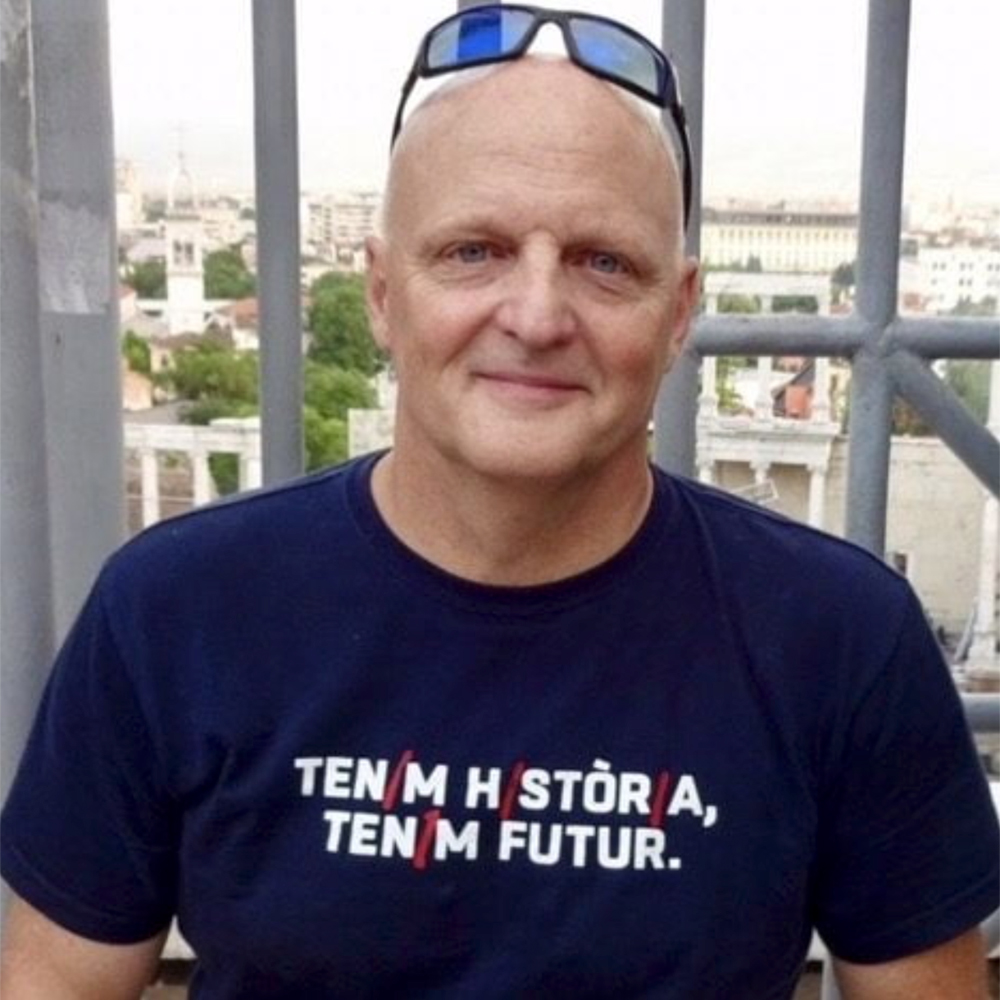The following is an excerpt from Dr. Thomas Harrington’s book, Treason of the Experts: Covid and the Credentialed Class.
Many, if not most, who question the approach that has been taken to controlling Covid are mystified, when they are not frankly enraged, by how so many people they took to be thoughtful and intelligent have failed to engage in any meaningful way with the available empirical evidence on the public health measures proposed and enacted by our public institutions. Similarly vexing and infuriating to many of us has been the failure of these people to even begin to acknowledge the copious damage generated by these same measures.
Many theses have been advanced to explain this sudden and massive outbreak of know-nothingism across the so-called developed world.
Several of them have centered the ability of hugely powerful corporate interests, working hand-in-glove with captured government, to censor and intimidate would-be thought leaders into silence. This is obviously a huge factor. But, in my view, it only gets us so far.
Why?
Because this self-evident plague of silence and critical listlessness has been accompanied at every step by a consciously produced blizzard of nonsense emanating from the same precincts of alleged intellectual refinement, its most oft-repeated and ridiculous element being the notion that science is a fixed canon of laws as opposed to an open and ever-evolving process of trial and error.
That so many working scientists and other highly credentialed people signed on, actively or passively, to this primitive and infantile premise during the preceding 30 months constitutes a severe indictment of our educational establishment.
It shows that most of the people paid by society to think do not reflect in any regular or systematic way upon the epistemologies, or frameworks of meaning, within which they operate.
And if, as it appears, these people know or care little about founding premises of their own fields of inquiry, it is a good bet that they’ve seldom if ever pondered the still broader, and historically specific cultural assumptions from which many of these same disciplinary practices sprang.
Like?
Like, for example, our culturally-generated understanding of time.
Most of us think about time a lot. But how many of us think about how we think about time?
Indeed, if you asked most people—including myself until I was forced to engage with the late 19th and early 20th-century clash between centralizing and peripheral nationalisms in Spain—about this you would be met with blank stares. Most assume, as I once did, that time just is, and that it proceeds inexorably and in a linear fashion into the future, and away from the past.
What I was forced to confront back then, however, was that this was a relatively new way of understanding the passage of time, one inextricably linked to the rise of modernity in Europe toward the end of the 15th century, and with it—among many other things—the advent of the nation-state and the idea of inexorable human progress through scientific discovery.
Before this, many if not most cultures viewed time in cyclical terms, meaning that they created and lived by a concept of time that provided a built-in mental and spiritual allowance for, and explanation of, humanity’s tendency to err, regress, and engage from time to time in the angry and irrational destruction of the greatest fruits of its collective labors.
Or to put it in theological terms, they lived a concept of time that made room for the idea of what most Christian traditions call original sin.
Linear time, in contrast, generally leaves man alone with his own permanent visions of perfectibility. Heady stuff. And no doubt an enormous factor in the general improvement of our material circumstance over these last five or so centuries. To believe you are in control is, at least in some unquantifiable way, to be more in control and capable of making positive things happen in your immediate environs.
But what happens, as is inevitable, when the palpable fruits of a particular way of being and thinking diminish as the particular historical zeitgeist it inspired runs out of energy?
Well, if your concept of time is cyclical you can much more easily allow yourself to admit what is going on, and to begin to make adjustments that will allow for a more fruitful engagement with the changing reality.
If, however, the only concept of time you’ve ever known is linear, you’re in a pretty bad spot. Under this paradigm of time, there is, in effect, no turning back. Rather, there is a tendency to engage in a compulsive doubling and tripling down on the techniques that at least a part of you knows are not working as well as they once did, and a consequent need to forcefully block out anyone and anything that might further feed that doubting part of your being.
The results of this frantic and self-defeating mindset are there for all who want to see them in our culture.
We see this lack of “cyclical consciousness” in the inability of so many people to engage with the issues of human diminishment and death with a minimal level of equanimity, grace, and proportion, something that in my view goes a long way toward explaining the extremely hysterical reaction of so many of our fellow citizens to the spread of the SARS-CoV-2 virus.
We see it in the pitiful (that is, if it weren’t so unbelievably dangerous) mindset of our foreign policy elites. As purblind acolytes of the school of linear time, they literally cannot imagine a world in which the US “right” to command, direct, and sack the treasures of other peoples of the world does not exist. Thus, despite the country’s self-evident loss of vital energy and wealth, they cannot even begin to conceive of executing a wise and artful curl off of what they still insist on seeing as the endless, railroad-straight path to ever-greater levels of American supremacy.
And now we are observing it most acutely in our culture’s approach to the theory and practice of science in general, and medicine in particular.
Modernity’s most important conceptual innovation, as I suggested above, was granting mankind permission to see the non-human elements of the world as amenable not just to the intentions of God, but also to our own quite earthly designs and desires.
That this effective declaration of war on nature produced enormous material benefits for at least some of the world’s inhabitants, there can be no denying. And those that, following the latest fad, flippantly suggest this was not so, only demonstrate their cultural ignorance.
However, to defend the accomplishments of modernity and its beloved offspring, empirically-driven science, is not necessarily to say that this linear, man vs. nature model of thinking can or will produce ever-increasing, or even constant levels of benefit over time.
Like people, paradigms get tired, mostly because the humans that work within them increasingly lose touch with the problems that originally elicited in them the intense and sacrifice-laden drive to create urgently desired new things.
But humans aren’t always very good at recognizing when they have begun going through the motions. This is especially so with those in the thrall of a purely linear vision of time in which the perennial reality of intellectual and spiritual regression is afforded no legitimate space.
The results are what we might call zombie institutions, places with all—and often much more—of the imposing physical manifestations of their past glory, but very little of the urgent, human, and existentially-driven creativity that made them necessary and effective.
And there is a surefire way of knowing when social institutions have entered this phase of their existence, one known to all who have studied the decline of Spain—the world’s first modern empire—and the concurrent rise of Baroque culture within it.
It is the ever-widening gap between the actual accomplishments of key social institutions and the degree of verbal and symbolic self-aggrandizement generated on their behalf.
When American medicine was actually producing miracle cures and extending the lifespan of the citizenry, its actions spoke for themselves. Little PR was necessary. However, now—as most studies on US life expectancy indicate—that burst of creativity has come to its end and has been replaced by arcane schemes designed not to cure, but to extend the medical industry’s profitability and level of control over citizen lives, we are being ceaselessly commanded to salute our noble doctors and the heartless Pharma corporations that control their practices.
And we have discovered, sadly, that few of those working within this baroque hall of mirrors have the critical acuity or moral courage to admit what they and the institutions within which they work have actually become.
And even sadder still is the tendency of those who don’t work within the medical industrial complex, but share its educational sociology, to continue to nostalgically insist out of an apparent fear of betraying their caste and its rigidly linear creed of human progress, that there is a direct line of moral and scientific continuity between say the first great doctor-hygienists, whose work probably saved millions, and an Anthony Fauci, who produced an unneeded and ineffective pandemic response that ruined life for millions.
So, to return to our initial question, “Why do so many refuse to see what is right before their eyes?”
Because doing so would require them to adopt an entirely new cosmovision, one in which linear progress is not a metaphysical guarantee, but a noble aspiration in a road of life that, as the pre-moderns knew all too well, always has more rocky turns than expanses of straight and well-paved highway.
Join the conversation:


Published under a Creative Commons Attribution 4.0 International License
For reprints, please set the canonical link back to the original Brownstone Institute Article and Author.









